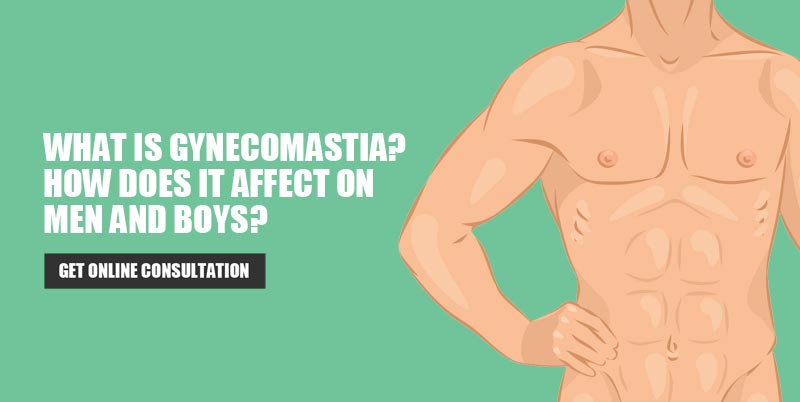What Is Gynecomastia? How Does It Affect On Men And Boys?
What does gynecomastia mean?
Gynecomastia is a condition which causes boys and men to swell breast tissue. It can happen when your body throws off the balance of two hormones. Even though breasts do not develop in men as they do in women, with a small amount of breast tissue, all boys are born.
The bodies of boys make mostly a hormone called testosterone, which during puberty guides their sexual growth. But males also make some estrogen-the girls ' sexual growth steering hormone. When a boy is going through puberty, or when an older man’s body makes less testosterone, the balance of the two hormones changes.
Sometimes a higher percentage of estrogen, when this happens, causes swelling of male breast tissue. This will have to some degree about half of the adolescent boys and as many as two - thirds of men over 50 years of age.
How is it going to happen?
Many things can trigger the hormone imbalance that causes male breast growth, and the exact cause is not known many times. In addition to changes in the body such as puberty and aging, some things that can cause gynecomastia are:
(1)Injury or testicular disease that produces testosterone.
(2)Thyroid problems because gland hormones control growth and sexual development.
(3) Some cancers, including lung tumors, pituitary or adrenal glands.
(4) Obesity may lead to higher estrogen levels.
(5) Medicinal products for a variety of diseases, including heart disease, cancer, depression or ulcers.
(6) Illegal medicinal products, including anabolic steroids, marijuana, and heroin.
(7) Renal failure (when it is no longer possible to clean and filter your blood)
Some boys may get gynecomastia for a short time while their mother's hormones are still in their bodies.
Symptoms
A lump of fatty tissue under the nipple may be your first sign of gynecomastia. This lump is sometimes tender or sore. This may cause you to worry about breast cancer that occurs in a small number of men. Gynecomastia isn't necessarily a sign of cancer, but to rule it out, your doctor may run some tests.
Your Emotional Reaction
Some studies suggest that gynecomastia may fuel anxiety, depression, decreased self - esteem, or eating disorders, particularly in puberty boys. Your doctor may refer you to a specialist in mental health to help address any problems that may arise.
Diagnosis
If your doctor suspects you have gynecomastia, he is likely to examine you to make sure that there are no hard lumps, oozing fluid, or skin problems that may be cancer signs. He'll probably also ask you some questions about your medical history, including:
(1) Have you had mumps, kidney or liver disease diseases?
(2) Which drugs did you take, legally or illegally?
Treatment
Most cases get better slowly on their own without treatment. If you have gynecomastia, your doctor may refer you to an endocrinologist who is dealing with hormone-related issues and how they affect your body. How your condition is treated may depend on your age, health, how long your condition may last and how well you are responding to certain medicines.
If during puberty gynecomastia occurs, it usually goes away on its own. This could take between 6 months and 3 years anywhere. If it turns out that because of another health problem, your hormones are out of balance, you will want to treat that underlying condition. Medication may be given to addressing the hormone imbalance that causes the growth of the breast.
You may also have surgery to take extra breast fat (liposuction) or tissue of the breast gland (mastectomy) in some cases.


